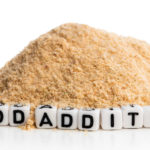
To understand if sugar is a cause of cancer, we must first understand what sugar and cancer are in their most basic forms. Put simply, sugar is a carbohydrate. You may also hear sugar referred to by its chemical name, sucrose. Sucrose can naturally be found in plants such as fruits, vegetables, and even in nuts.
Next, let’s look into what cancer is from a high level. Cancer is a disease in which the body experiences uncontrolled growth of abnormal cells. The body is made up of cells and when the cells are healthy they naturally go through a life cycle of growth, division, and death to then be replaced by new cells. Cancer develops when the body has old cells that resist dying and instead start to grow and multiply, building up to create a tumor [1].
Origin of Sugar
The sugar we are most familiar with, table sugar or white granulated sugar, is predominantly derived from two plants, sugar cane or sugar beet. Sugar cane or sugar beet are used because they contain the highest naturally occurring amount of sugar [3].
History Linking Sugar to Cancer
As early as 1924 the idea that sugar could cause cancer existed, it was first published in Dr. Otto Warburg’s paper On Metabolism of Sugars. Warburg hypothesized that sugar consumption had an impact on cancer because cancer cells rewire the natural cell function to promote growth and survival by changing the cell metabolism. In order for cancer cells to make this change to promote growth and survival, the cancer cells need sugar. Therefore, Warburg concluded that sugar causes the growth and survival of cancer cells. This concept is known as The Warburg Effect and has been studied for years. There are still many questions in the scientific community that need to be answered before we can make any kind of firm conclusion on Warburg’s hypothesis [2].
Additionally, it is important to note that our bodies need to have certain amounts of sugar in the form of glucose to function properly. Glucose is the primary source of energy to nearly every cell in the body, including the brain [5]. Rather than claiming sugar causes cancer and to eliminate sugar entirely, the American Cancer Society sites 6 ways to reduce the risk of cancer [6] including:
- Avoid tobacco (i.e. quit smoking)
- Follow sun-safety guidelines to ward off skin cancer specifically
- Eat healthy and stay active
- Take steps to protect against HPV
- Learn how some cancers can be found early
- Understand guidelines for screening for cancer
Why is Sugar Used in the Food Industry?
Sugar has many technical applications and is key to providing attributes to the products we know and love. Top examples of technical applications of sugar include the following:
- Adding flavor as a sweetener
- Providing texture and volume to baked goods
- Preserving foods by retaining moisture as a humectant
- Adding aroma through interaction with other molecules during cooking or baking
Summary
We agree that excessive sugar consumption is bad for you. However, there is limited evidence supporting the claim that sugar is the cause of cancer. Based on our research, there are a multitude of factors influencing an individual’s risk level of cancer. Additionally, as outlined above by the American Cancer Society, there are many ways to reduce the risk of cancer. To recap, sugar has many useful functions. Sugar in the form of glucose is essential for our bodies to function properly, providing energy to every cell in the body including the brain. Sugar provides texture and volume to baked goods, extends shelf life, adds aroma during baking or cooking, and is of course a sweetener used in many drinks, sauces, foods, and baked goods we know and love.
For more info, check our Youtube!
References
- Eldridge, Lynne, M.D. (December 2019). The Link Between Sugar and Cancer. Retrieved October 2020 from https://www.verywellhealth.com/cancer-loves-sugar-myths-and-facts-430032.
- Liberti, M. and Locasale, J. (January 2016) The Warburg Effect: How Does It Benefit Cancer Cells? Retrieved October 2020 from Trends in Biomedical Science, Mitochondria & Metabolism, Volume 41 Pages 211-218.
- The Sugar Association. What Is Sugar? Retrieved October 2020 from https://www.sugar.org/sugar/what-is-sugar.
- What Is The Role of Sugar in the Food Industry? Retrieved October 2020 from https://www.eufic.org/en/whats-in-food/article/sugars-from-a-food-technology-perspective
- How is Sugar Used in the Body? Retrieved October 2020 from https://wsro.org/how-is-sugar-used-in-the-body/.
- What Causes Cancer? Retrieved October 2020 from https://www.cancer.org/cancer/cancer-causes.html.









Leave A Comment